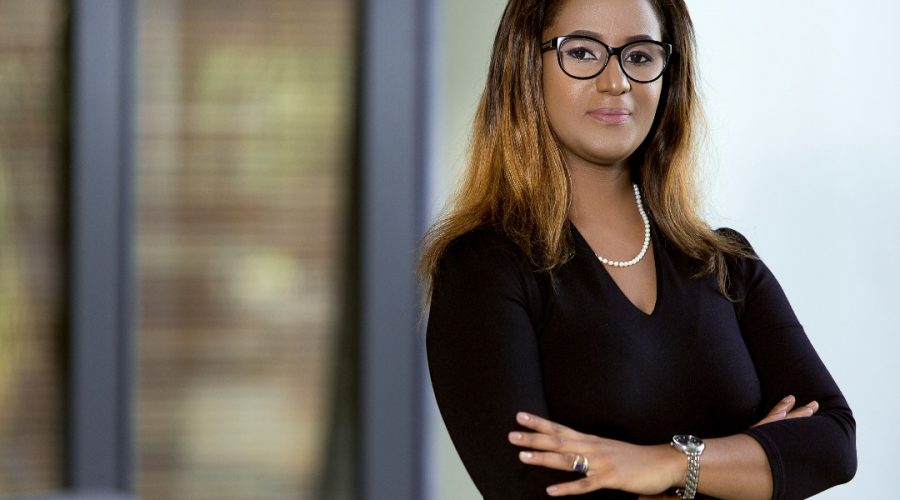Name of arbitrator practitioner:
Isaiah Bozimo
Education and selected publications:
Education:
- LLM (Queen Mary)
- LLM (LSE)
Selected publications:
Contributing author, Rethinking the Role of African National Courts in Arbitration. 2018, Woulters Kluwer.
Countries qualified to practice:
Nigeria
Language(s):
English
Name of law firm or institution:
Broderick Bozimo and Company
Area(s) of specialisation:
Arbitration and Litigation
What influenced your interest in arbitration?
Arbitration was a natural product of my early years in practice. Much of my time was spent either preparing for, observing or participating in court and arbitral proceedings.
I fell (and still am) in love with the strategy and psychology behind winning cases.
What are some of the challenges faced by young practitioners working on disputes in Africa? What do you think can be done to address these challenges?
A major challenge is finding opportunities to shine in a very crowded market, but there are several ways to be noticed.
Volunteer to work on committees. It’s very time consuming, but you get invaluable one-on-one time with ‘gatekeepers’ in the community.
Write something. Articles written by you on important topics will always find a receptive audience.
Look for speaking opportunities. Prepare talks that offer substance, practical tips and relevant advice.
Practice in your own backyard. If your firm has a well-developed Arbitration Practice Group, then join it. If it does not, then create one!
What do you think can be done to improve the domestic arbitration practice in Nigeria?
Three things. Excellent practitioners that understand the process, excellent infrastructure to facilitate the process and specialised courts to support the process.
The two most valuable characteristics of arbitration are the enforceability of awards and the avoidance of national courts. Our judges are critical in this regard.
With Court support, minimal intervention, and a proven track record for enforcing arbitration agreements and awards, the process will flourish in Nigeria. If the balance is struck differently, arbitration will become less attractive to domestic parties.
Are there any thoughts on the current $9.6bn award in P&ID v. Federal Republic of Nigeria that you would like to share?
P&ID is a case study of things that can, and will, go wrong without effective planning.
The original agreement provided for disputes to be resolved through ad-hoc arbitration under the Arbitration and Conciliation Act, with the ‘venue’ of the arbitration to be London or anywhere else agreed between the parties.
In its application to confirm the award, P&ID noted that Nigeria did not apply to have the final award set aside in London or anywhere else and that the time for doing so expired nearly a year prior to the application.
After the final award, Nigeria entered into negotiation with P&ID and managed to get the company to accept a payment that was a tiny fraction of the award (thought to be less than US$200 million) with some add-ons including getting the project back on track. Nevertheless, the Ministry of Justice reneged on this agreement.
Today, the debt stands at $9.6bn and counting.
With the rising cost of arbitration, what do you think can be done to reduce costs and make arbitration attractive to indigent and low net worth claimholders?
Rising costs are always a concern. The challenge is to ensure that the costs are commensurate to the value offered by the arbitral process. When properly managed and integrated into a business strategy, arbitration clauses can be a very efficient process.
Some arbitral institutions in Nigeria now have expedited rules and reduced fee scales for small claims – which is very commendable. In terms of the practical steps parties can take to reduce costs, they should:
- Conduct a proper investigation and analysis to determine whether a claim is worth pursuing or not.
- If a claim or defence is worth pursuing, have an efficient plan for how to proceed. It helps to summarise your arguments and prepare initial times to keep the claim or defence on track.
- Choose an experienced team of advisers that are prepared to engage constructively with the strategy and provide new perspectives.
- Choose the right tribunal. The arbitrators’ experience must be balanced against their availability.
This list is non-exhaustive (how very legal of me) but should help if implemented properly.
Do you have any mentors in the field of arbitration? What impact have they had on your career?
I’m truly inspired by young African practitioners that are demonstrating their excellence globally. Individuals like Mohamed Abdel-Wahab, Leyou Tameru, Ndanga Kamau – the list could go on forever! They give me the drive to continuously improve and innovate.
I’m also grateful to the many experienced practitioners on the continent, from whom I continue to learn (they are literally too many to mention – but they know who they are!).
What advice do you have for other young arbitration practitioners?
Though it is on the rise, international arbitration remains a niche discipline compared to litigation. It’s never too early to begin prepping. Universities offer international dispute resolution LLMs with optional modules dedicated to commercial arbitration. Also, international institutions such as the ICC, ICCA and LCIA offer internships every year.
What matters above all is demonstrating an interest. General litigation experience is valuable, and practice in moot courts and other debate forums can go a long way.
It’s also essential to stay in the know not only about international arbitration specifically, but what’s going on in the wider commercial and political world. Keep an eye on trends affecting international law and some of the significant arbitration cases hitting the headlines.





